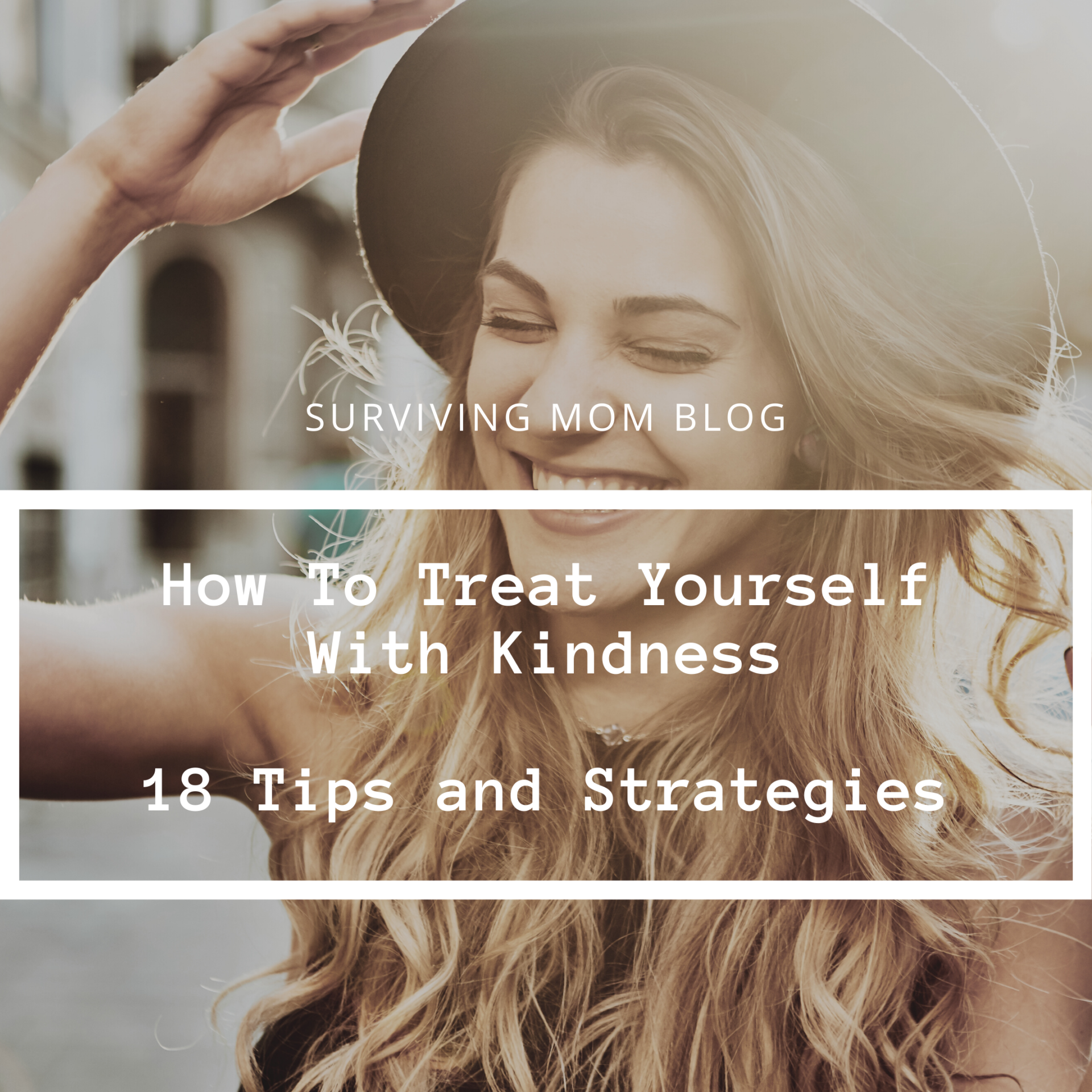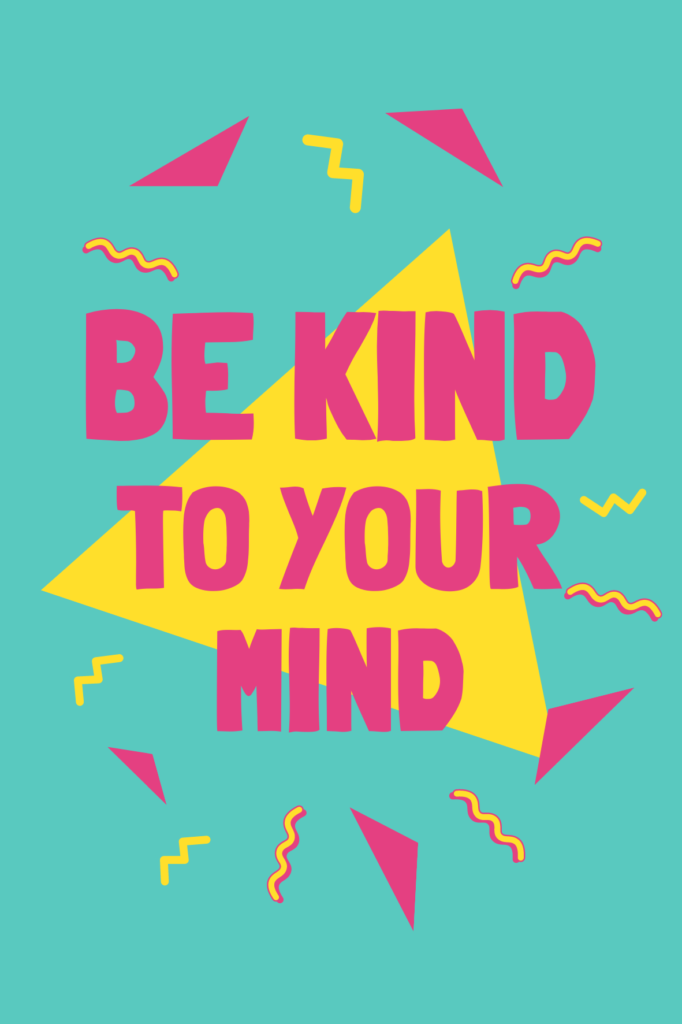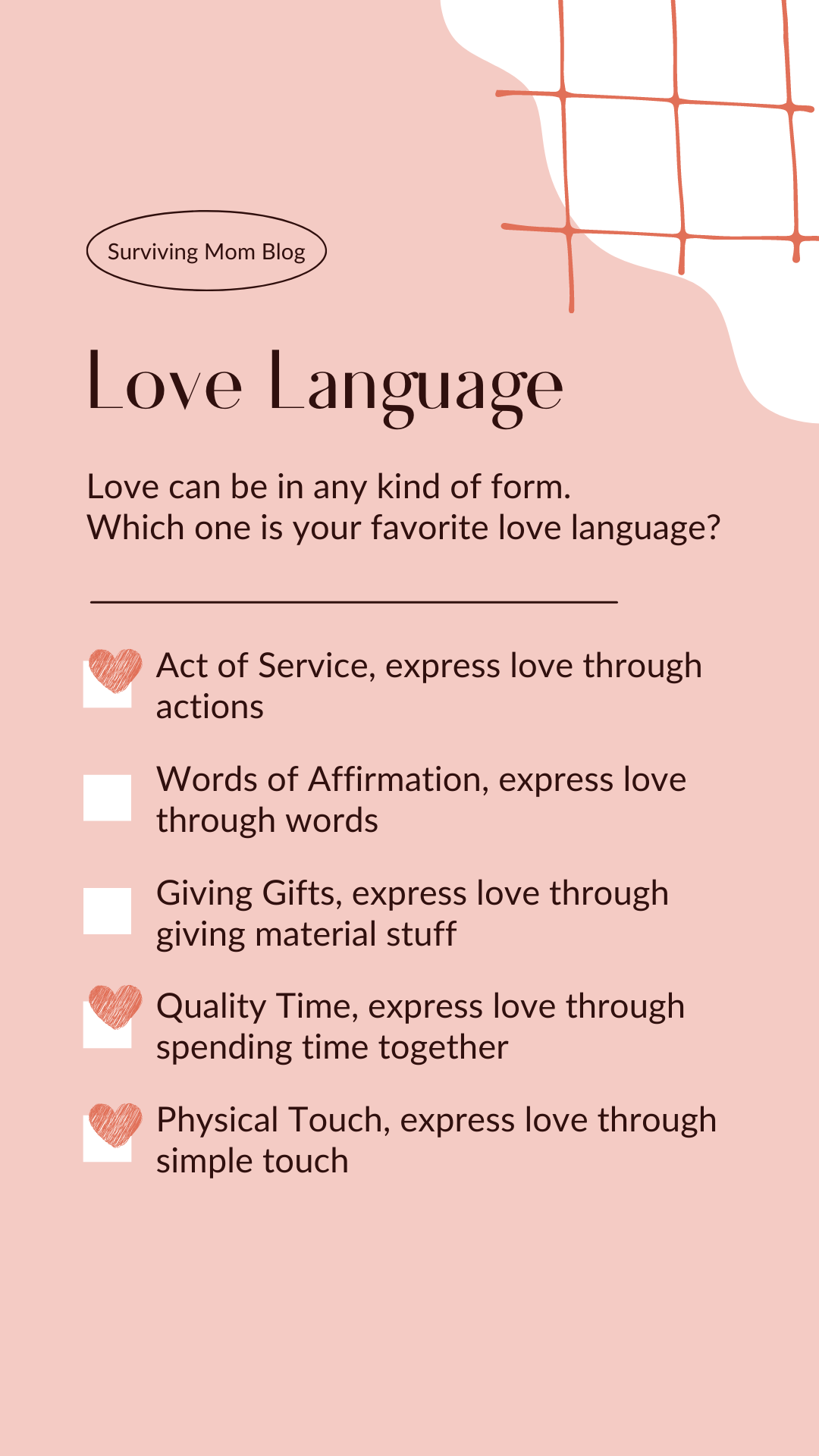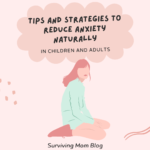
We try our best to treat others with kindness, and we teach our children to treat others with kindness. However, how often do we treat ourselves that way? For many, we are our own worst critic rather than our greatest source of comfort and support. As a result, I am sharing with you 18 ways to treat yourself with kindness.
18 Tips and Strategies To Treat Yourself With Kindness
(1) Challenge negative thoughts and feelings
It seems like such an obvious thing, but avoiding self-criticism is something that so many of us struggle to actually implement! We often find ourselves falling victim to our inner critic, who is a master at telling us that we are stupid, worthless, and failures. Our inner critic is formed from painful early life experiences in which we witnessed or experienced hurtful attitudes towards us. As we grow up, we unconsciously adopt and integrate this pattern of destructive thoughts and behaviors towards ourselves. This continuous way of thinking becomes the story we tell ourselves. In turn, these negative beliefs are the lens in which we interpret ourselves and the world around us. We fall into the vicious cycle of confirmation bias – we seek things to confirm the story that we tell ourselves. If we believe we are failures, we will naturally view the world in a way that confirms that belief.
How do we stop this? By challenging the self-criticism and negative thoughts. Replace the negative beliefs with positive ones. Challenge the story that you tell yourself. The next time you tell yourself that you are a failure, stop and think if that is indeed the case. Change your confirmation bias by pretending you are opposing counsel and remembering about all the times you did something that was difficult. Think about examples of your accomplishments and goals that you have achieved. Replace your self-criticism and negative thoughts with kindness and self-respect. Speak positively and compassionately to yourself, and tell your inner critic that you appreciate its intentions, but you are going to take it from here.
(2) Positive affirmations
I’m a big believer in faking it until you make it. Write down a list of things you like and believe about yourself (or want to believe about yourself). Include all positive qualities and attributes. However, remember to primarily focus on who you are as a person rather than how you look. Whatever negative stories you tell yourself, write the opposite in an affirmation. For example, if you have a negative belief that you are unlovable, write positive affirmations such as, “I am loveable just as I am.”, “I deserve love.”, and “I am loved.”

Make a commitment to yourself to say positive affirmations daily. I think saying them aloud in front of the mirror is a great way to reinforce these affirmations (huffpost, 2016), but there is no right or wrong way to do this. The important takeaway is that these positive affirmations should be used to help you to believe in yourself and help you change the way you talk and view yourself. Treat yourself with kindness, and you will start to believe the things you are saying.
(3) Prioritize yourself
Treat yourself with kindness by putting yourself first. You are important, and you need to start valuing yourself. That means implementing a self-care routine and setting boundaries. We all have limited time, but even ten minutes a day dedicated to caring for yourself will do wonders for your mental wellness as well as self-esteem. By scheduling time for self care and setting and maintaining boundaries, you are telling yourself that you matter and respecting yourself.
Ask yourself what you need and what type of care you need every single day, and make sure to take the time to give it to yourself. Check out my worksheets on self-care and my boundaries worksheet for step-by-step instruction and examples of each.
(4) Accept that mistakes are inevitable, and you are not perfect
As humans, we are all fallible. Imperfection is inevitable; judging yourself for your mistakes is not treating yourself with kindness. Instead, try to create small, realistic goals that set you up for success (healthshots.com, 2020), and remember to acknowledge and praise yourself along the way. If you set a goal and it wasn’t achieved, remind yourself that you did not accomplish this goal YET. By including the word “yet” in the statement, you are giving yourself space and time to achieve your goals rather than criticizing yourself and interpreting it as a failure.
(5) SElf-Acceptance
We all have visions of how we want our lives to turn out and what we want to achieve in the future. Often, life does not work out the way we anticipated. Our individual journeys are comprised of a series of curveballs, and all we can do is play the hand we were dealt. Accept what is out of your control and focus on what is within your control. Treat yourself with kindness and respect while holding space for growth.
This applies to us and our healing journey as well. Accept all parts of yourself by remembering that each of us are works-in-progress. We can always strive to be better and do better, without setting unrealistic expectations for ourselves or expecting perfection.

(6) Be your own friend
The standards, words, and thoughts that we have for our friends should set the precedence for the standards, words, and thoughts we use for ourselves. Give yourself empathy, compassion, and understanding just as you would a friend. The next time you are harsh with yourself, ask if you would react the same way if these circumstances applied to a friend. Treat yourself with kindness by being your own friend, avoiding self-criticism, and respecting yourself.
(7) Discover what brings you joy
Do things that make you feel happy and content. Even if it is only for a few minutes each day, make sure to discover and take time for your hobbies. Whether it is listening to music, reading a book, or painting, invest in your own self-happiness.
(8) Be your own advocate
Encourage and motivate yourself daily. This also means recognizing that everyone needs support. Reach out to others and ask for help if needed. Just as you would fight to get support for your child if it was needed, fight for yourself.
(9) Surround yourself by people who love you unconditionally and treat you well
Others treating you with kindness is not a substitute for treating yourself with kindness. However, if you want to respect and care for yourself, you cannot be around people who do not appreciate you and treat you badly. Set boundaries to ensure healthy relationships, and distance yourself from people who are toxic. Defend yourself and speak up if you are not treated in a way that aligns with your values and beliefs.
(10) Give yourself the validation you seek from others
It is natural to want others to acknowledge and support your feelings. However, you must learn to get that validation from yourself first and foremost. Otherwise, you are opening the door to codependent behavior and seeking reassurance from others rather than giving it to yourself.
A way to learn self-validation is through journaling. Write down your thoughts, feelings, challenges, and any behavior that makes you feel guilty. Also, write down your accomplishments and things you feel proud about.
Practice mindfulness by taking time to acknowledge your feelings, good and bad. In order to validate the negative feelings, normalize them instead of judging yourself for what you are feelings. For example, if you snapped at your child, remind yourself that everyone feels frustrated. Then, take time to give yourself support for the negative feelings/actions. Write down ways you can comfort yourself. For example, remind yourself that it is understandable that you snapped due to feeling overwhelmed (thehealthy.com, 2017). The next time you feel overwhelmed, perhaps you can try to practice breathing or taking a break. Remember to not judge yourself, but rather to validate and support your feelings. As long as you aren’t acting abusive, you need to understand that you are human and are doing the best you can.
(11) Discover your own love language

Knowing your love language and your partner’s love language is crucial for your romantic relationship, but it is also a great way of showing kindness to yourself. Remember to speak your love language to yourself. For example, if your love language is words of affirmation, remember to tell yourself on a regular basis that you are doing a great job and that you appreciate everything that you do.
(12) Take care of yourself
Just as you should practice self-care for your mental well-being, it is necessary to take care of yourself physically. Make sure to eat healthy and exercise regularly. Treat yourself with kindness by looking out for your health.
(13) Embrace your differences
Instead of looking at your differences and insecurities as something to be ashamed of, what if you embraced them? Whether it is the unusual way you laugh, your unusual sense of humor, or the freckles all over your face, remember that differences are what make you special.
(14) Focus on your strengths
Make a list of things that you like about yourself. Include all accomplishments, acts of bravery and perseverance, and anything that is a source of pride. Also list traits and qualities you appreciate about yourself. Look at this list often, and keep adding to it as needed. Whenever you are feeling badly about yourself or are treating yourself harshly, look at this list as a reminder that you deserve to treat yourself with kindness. This list is who you truly are, and that person deserves to be treated well.
(15) Don’t compare yourself with others
It is fine to look at others’ accomplishments and appreciate them. They can be used as inspiration, but they should not make you feel like you are lacking. Every person’s circumstances are different, and comparing ourselves to others is a game we will never win. Success is subjective and we all have our own pace and way of achieving it (healthshot.com). The only person we should strive to be better than is ourselves.
(16) Give yourself physical reassurance
Treat yourself with kindness by giving your feet a massage, give yourself a hug, or hold your own hand (thehealthy.com). Remind yourself that you are your own source of comfort.
(17) Meditation
Repeat a kind mantra to yourself or listen to a guided meditation to treat yourself with kindness. Meditation “teaches your brain to be more compassionate and soothing throughout the day, even at times when you are not actively meditating” (thehealthy.com).

(18) Understand that change takes time
This new way of treating yourself is going to be a work-in-progress, as it’s hard to learn how to change. Instead of getting mad at yourself or judging yourself, remember that treating yourself with kindness means accepting that you will mess up. You may take two steps backwards after you take one step forwards. That’s okay. Pick yourself up and try again.
Learning to be kind to yourself means accepting that like everything in life, you will fall down and have to get back up. It is up to you whether you fall down and kindly dust yourself off, or if you fall down and yell at yourself for falling.
Don’t forget to share this post with someone in your life who deserves to treat themselves with kindness! <3
Disclaimer
This post may contain affiliate links. If you purchase a product via my link I may receive a small commission at no additional cost to you. Please visit our disclaimers here





Derek says:
Love these tips!!
Self validation and the self love languages have been essential for me during these crazy times!! Great job on this massive guide!!
Randi says:
Hi, Derek!
Thank you so much for the kind words. Self validation and love languages are incredibly helpful for me too. I’m so grateful for your feedback and support!
Best,
Randi
Naomi P Lane says:
The last point resonates with me today, that’s change takes time. I have morphed myself into becoming a published author over the past three years. It has been a step learning curve and some days I feel ill equipped, but I am just taking it slow and trying to learn from my mistakes and thats’s all anyone can do.
Randi says:
That last point is one that applies to so many aspects of life. Change takes time, and sometimes all you can do is free fall and hope for the best. I’m glad you are giving yourself time and grace in the process.